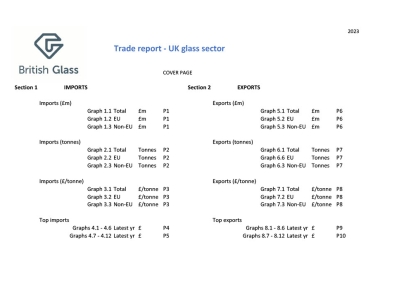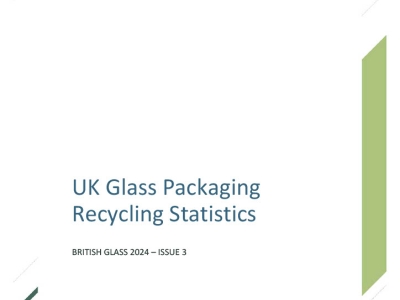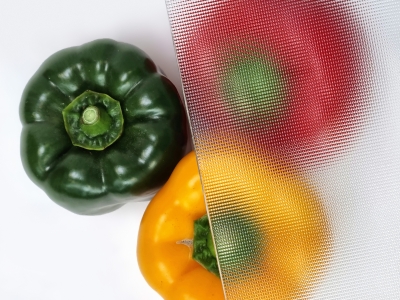O-I opened the doors of its Harlow plant to government officials from DECC and BIS this month. The visit, coordinated by British Glass, was a chance for those working on EU Emissions Trading Scheme and the Decarbonisation and Energy Efficiency Roadmap action plans to better understand how current policy developments play-out in practice – by seeing see glass production in action.
O-I staff gave an extensive tour of the state of the art plant – from the cullet stores, oxygen generating plant and batch pre-heater – via the new oxy-fuel furnace – right through to the cold end finishing. For many of the government staff this was the first time they’d seen glass production in action and – like most first-timers – they were mesmerised by the forming process.
The group also learned how to identify a bottle’s manufacturer and production line from the punt markings and got to see some familiar brands take shape – giving them an appreciation of commercial markets served by British container production.
In May 2016 O-I won the Glass Focus 2016 Sustainable Process Development Award for its investment at the Harlow plant. O-I public affairs director for Europe, Nicolas Robin, was able to describe in context how the plant fits into the company’s worldwide operations, with particular reference to recently completed energy efficiency projects.
Jenni Richards, the British Glass’ policy lead on EU-ETS who helped to coordinate the visit, said:
“The government staff made full use of the opportunity to ask questions and reach a better understanding of the process and all its complexity – in terms of technology, quality and safety. The O-I team explained the impact that the various proposals for EU ETS to 2020 and beyond would have on a container plant like this, and was able to stress the importance of recognising competition issues between materials.”
British Glass staff also presented information on the UK glass sector as a whole, outlining past and current carbon emission and energy efficiency improvements, recycling trends and the energy saving impact of glass products. They also highlighted some of the current environmental policy challenges that the sector faces and there was an in depth discussion about recycling and the barriers that are currently being faced in the UK.
With the UK’s exit from the EU obviously part of the discussion, both O-I and British Glass stressed the need to make sure no conditions are imposed on UK manufacturing that undermine its global competitiveness. The meeting also raised opportunities to create a better emissions reduction framework for the UK (depending on the outcome of trade negotiations) which would simplify the current regime and align it with the glass sector Decarbonisation and Energy Efficiency Roadmap action plan.
Jenni Richards said:
“We were delighted that DECC and BIS accepted this invitation. It’s so important that policy makers have insight into the realities of manufacturing if industrial strategy is to enhance the UK’s competitiveness and meet sustainability requirements. Ensuring that exchange of information and expertise between our members and government is a core part of British Glass’ work – and this visit is a prime example of bringing that to life.”


